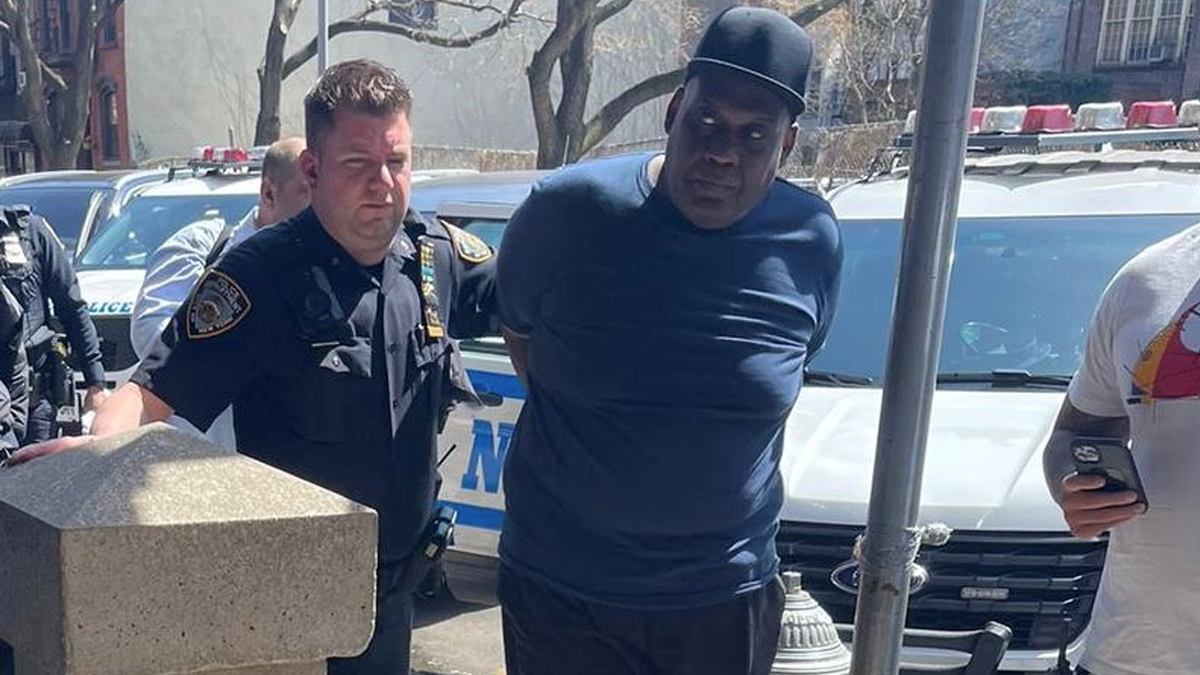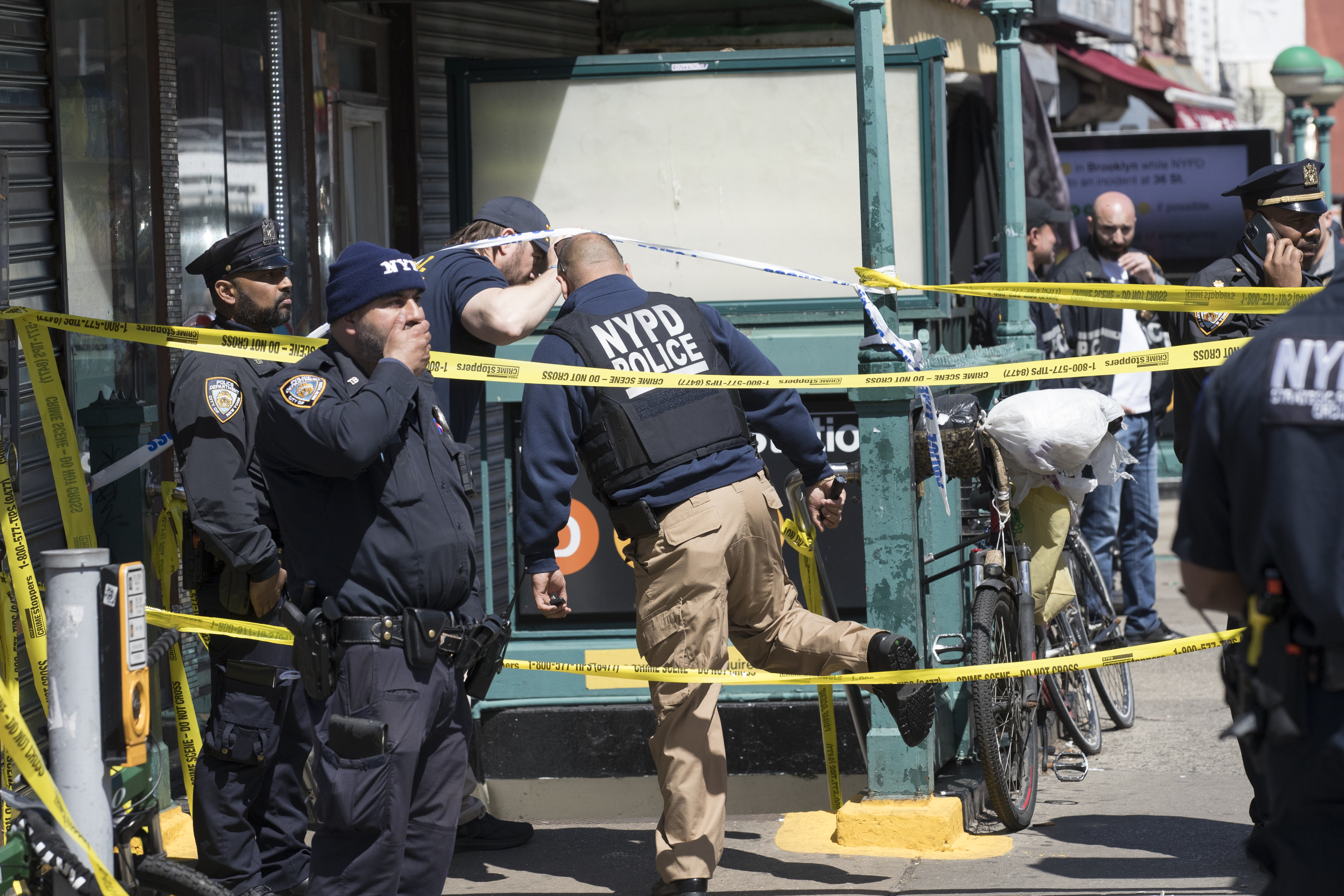Prosecutors charging the alleged Brooklyn subway shooter with federal terrorism charges filed new paperwork fighting his request to move the trial out of New York City, while also laying out new evidence they claim shows he's responsible for the shooting that left nearly two dozen injured, 10 of them by gunshots.
Frank James is accused of setting off smoke bombs and firing 33 rounds on a Manhattan-bound N train in April. The 62-year-old was arrested April 13, about 30 hours after authorities said he drove from Philadelphia and unleashed smoke bombs and dozens of bullets in a train full or morning commuters as it approached a station in Sunset Park. The shooting victims ranged in age from 16 to 60; all survived.
Authorities previously said James’s bank card, cellphone and a key to a van he had rented were found at the shooting scene. Police also said they found the 9mm Glock semiautomatic handgun used in the shooting and traced it to James.
On Monday, the U.S. Attorney's Office filed paperwork alleging further ties between James and the crime scene have been found. The court filing states that evidence shows the Glock pistol recovered at the scene of the shooting was purchased in James' name, and that ballistic analysis of cartridges cases from inside the subway car shows the bullets were fired from the same gun.
Multiple DNA samples found on the gun matched that of James', "indicating that the defendant held the gun that was used to fire the bullets during the attack," prosecutors stated.
Get Tri-state area news delivered to your inbox. Sign up for NBC New York's News Headlines newsletter.
In the months and years before the shooting, James bought different material that was later used in the attack, according to court documents. That includes multiple boxes of the same brands of ammunition, smoke grenades, yellow construction hard hat and backpack that were all left behind at the scene, prosecutors allege.
Prosecutors also point to search history from a cell phone recovered at the scene which allegedly shows that the attack had been planned out well in advance. Two of the searches on April 6, about a week before the incident, include "stops on the N train" and "311 kings highway brooklyn ny" — where a U-haul van rented in James' name was found.
That phone also contained audio recordings, according to prosecutors, which seemed to refer to a planned attack.
"You're going to know for a face that I'm gone, there'll be no question about that...when I go out this motherf----r...everyone's gonna know it was me," James stated on one recording, court documents state.
"If you hear the name Frank James on the news, if something happens to a Frank James that's 60-something years old, chances are that's me," James is allegedly heard saying on another recording.
The new alleged evidence comes as James and his attorneys have sought to get the trial moved out of NYC, an effort which prosecutors are fighting. While the defense claims that James cannot get an impartial jury due to the heavy amount of press coverage during the manhunt for James as well as in the aftermath of the arrest, prosecutors countered that claim on Monday.
The U.S. Attorney's office said in court filings that in order to get a trial moved, the coverage in the press had to have been so "pervasive and prejudicial that it corrupts the criminal process ad renders a fair trial virtually impossible." Prosecutors said that the defense hasn't established that to be the case, and James will be able to get a fair trial due to the sheer size of the jury pool.
"The defendant committed an attack on a Brooklyn subway. He should be tried in Brooklyn," the filing states.
James' attorneys have also called for some of the statements James made after his arrest be tossed out because he was being questioned before being read his Miranda rights. However, prosecutors said that under the public safety exception, the FBI had a right to ask James if there were any explosives or weapons still out there that could cause an immediate threat to the public.
When asked if there were "any more plants to hurt anybody else" or if there were "fireworks, grenades, anything," James denied having any knowledge of what they were talking about — saying he was just a passenger on the train.
"I have no idea what you’re talking about at all. See, I was on the train. I was on the train," James said, according to court papers. "I was on the train when whatever happened, happened."
He then told a law enforcement officer that he previously did have guns, but that they had "been disposed of" previously, court papers state.
James pleaded not guilty in May to federal charges of committing a terrorist attack on mass transit and discharging a firearm during a violent crime. If convicted, he faces a maximum sentence of life in prison.
Defense attorney Mia Eisner-Grynberg had cautioned at at the time of James' arrest not to rush to judgment and noted that James alerted police to his whereabouts. He was arrested in Manhattan’s East Village after he called a tip line saying he was at a fast food restaurant in that section of the city.
A motive for the attack is unclear. In numerous rants he posted on YouTube and social media, James, who is Black, made bigoted remarks about people of various backgrounds and railed against New York Mayor Eric Adams and complained about mental health care he received in the city years ago.
In one of the videos posted online, James talked about upcoming travel to New York City, saying that "it's going to be very interesting what happens in New York with me," according to court documents. He also allegedly reference "dying time" and said that "the whole system is coming down," just like on Sept. 11 after the terror attacks at the World Trade Center.
James also stated in videos that he had "nothing to lose" because of his age and made reference to a plan with "a lot of moving parts." Court papers state that he want ed to make sure those plans "don't fizzle out or...don't miss deploy." In one audio recording from a cellphone, James allegedly called "for the end of humanity and state that he was full of hate, anger and bitterness," prosecutors said in the filing.
The federal trial is set to begin February 27.



